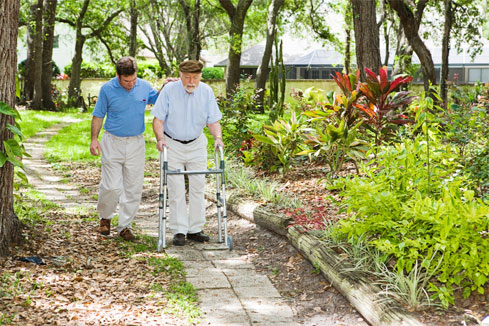
Elder Law Lawyers
The auto industry got its start in the United States at a time when the nation was still expanding westward. The evolution of car culture was so closely tied to the evolution of the nation that it isn’t surprising how influential and ever-present motor vehicles are in the lives of most Americans. Unless you live in the heart of a city and it’s easy for you to walk or use public transit to live your life, chances are that you are a car owner. And if forced to think about it, chances are that you’d admit how challenging it would be for you if you weren’t permitted to drive anymore.
As traveling independently via a motor vehicle is an aspect of most adults’ identities in the U.S., it is also not surprising that so many older Americans resist the idea of hanging up their keys. Due to this – very understandable – resistance, many older drivers continue to travel solo in this way long past the time when it is safe to do so.
If you have concerns about whether it is time for a loved one to hang up their keys, it is important to consider the issue from a few angles before bringing it up to them. Otherwise, you’ll run the risk of having your concerns dismissed instead of having your loved one evaluate them with a relatively open mind.
Performance, Not Perception
As an experienced car accident lawyer – including those who practice at Council & Associates, LLC – can confirm, as drivers of any age can cause crashes due to negligence, recklessness and inattention, it is important to focus on how safely your loved one is driving, not simply a concern that they might be “too old.”
Every year, people in their 80s and 90s complete the IronMan World Championship course in Kona, Hawaii. Every day, people in their 80s and 90s serve as members of Congress. Older adults who are in good physical health and in good mental shape can do just about anything that they want, within reason. Conversely, someone who is showing signs of early-onset Alzheimer’s may need to hang up their keys in their early 50s.
While someone’s base age is an indicator of whether they’re more likely than not to be declining in ways that could compromise their driving – adults over the age of 85 are more likely to cause crashes than almost all younger age groups, for example – performance matters most. Meaning, if your loved one is an excellent driver and their eyesight, mental alertness, and physical health allow them to remain behind the wheel, that should be their choice. But if their mental or physical health is deteriorating, they should think about hanging up their keys for safety reasons no matter how old – or young – they may be. Reminding them that it isn’t just their safety at stake may help them to gain the perspective they need to move forward without their own vehicle.



